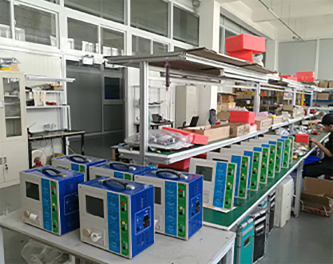 English
English



-
 Afrikaans
Afrikaans -
 Albanian
Albanian -
 Amharic
Amharic -
 Arabic
Arabic -
 Armenian
Armenian -
 Azerbaijani
Azerbaijani -
 Basque
Basque -
 Belarusian
Belarusian -
 Bengali
Bengali -
 Bosnian
Bosnian -
 Bulgarian
Bulgarian -
 Catalan
Catalan -
 Cebuano
Cebuano -
 China
China -
 China (Taiwan)
China (Taiwan) -
 Corsican
Corsican -
 Croatian
Croatian -
 Czech
Czech -
 Danish
Danish -
 Dutch
Dutch -
 English
English -
 Esperanto
Esperanto -
 Estonian
Estonian -
 Finnish
Finnish -
 French
French -
 Frisian
Frisian -
 Galician
Galician -
 Georgian
Georgian -
 German
German -
 Greek
Greek -
 Gujarati
Gujarati -
 Haitian Creole
Haitian Creole -
 hausa
hausa -
 hawaiian
hawaiian -
 Hebrew
Hebrew -
 Hindi
Hindi -
 Miao
Miao -
 Hungarian
Hungarian -
 Icelandic
Icelandic -
 igbo
igbo -
 Indonesian
Indonesian -
 irish
irish -
 Italian
Italian -
 Japanese
Japanese -
 Javanese
Javanese -
 Kannada
Kannada -
 kazakh
kazakh -
 Khmer
Khmer -
 Rwandese
Rwandese -
 Korean
Korean -
 Kurdish
Kurdish -
 Kyrgyz
Kyrgyz -
 Lao
Lao -
 Latin
Latin -
 Latvian
Latvian -
 Lithuanian
Lithuanian -
 Luxembourgish
Luxembourgish -
 Macedonian
Macedonian -
 Malgashi
Malgashi -
 Malay
Malay -
 Malayalam
Malayalam -
 Maltese
Maltese -
 Maori
Maori -
 Marathi
Marathi -
 Mongolian
Mongolian -
 Myanmar
Myanmar -
 Nepali
Nepali -
 Norwegian
Norwegian -
 Norwegian
Norwegian -
 Occitan
Occitan -
 Pashto
Pashto -
 Persian
Persian -
 Polish
Polish -
 Portuguese
Portuguese -
 Punjabi
Punjabi -
 Romanian
Romanian -
 Russian
Russian -
 Samoan
Samoan -
 Scottish Gaelic
Scottish Gaelic -
 Serbian
Serbian -
 Sesotho
Sesotho -
 Shona
Shona -
 Sindhi
Sindhi -
 Sinhala
Sinhala -
 Slovak
Slovak -
 Slovenian
Slovenian -
 Somali
Somali -
 Spanish
Spanish -
 Sundanese
Sundanese -
 Swahili
Swahili -
 Swedish
Swedish -
 Tagalog
Tagalog -
 Tajik
Tajik -
 Tamil
Tamil -
 Tatar
Tatar -
 Telugu
Telugu -
 Thai
Thai -
 Turkish
Turkish -
 Turkmen
Turkmen -
 Ukrainian
Ukrainian -
 Urdu
Urdu -
 Uighur
Uighur -
 Uzbek
Uzbek -
 Vietnamese
Vietnamese -
 Welsh
Welsh -
 Bantu
Bantu -
 Yiddish
Yiddish -
 Yoruba
Yoruba -
 Zulu
Zulu
Testing Electrical Circuit Breakers for Optimal Performance and Safety
Understanding Electrical Breaker Testers Ensuring Safety and Reliability
In the world of electrical installations and maintenance, ensuring the reliability and safety of circuit breakers is crucial. Electrical breaker testers play a vital role in this process by evaluating the functionality and performance of these devices. As electrical systems grow in complexity, the importance of utilizing specialized testing equipment like breaker testers cannot be overstated.
What is an Electrical Breaker Tester?
An electrical breaker tester is a device designed to assess the operational effectiveness of circuit breakers. These tools can simulate fault conditions, measure tripping times, and evaluate the overall performance of breakers under various scenarios. They are essential for professionals performing diagnostic checks, maintenance, and commissioning of electrical systems.
Why is Testing Important?
Circuit breakers are safety devices designed to protect electrical circuits from overloads and short circuits. Without regular testing, there is a risk that a breaker may fail to trip during a fault, leading to damaging electrical fires or equipment damage. Testing ensures that breakers can safely interrupt the flow of electricity, thus protecting both the electrical system and the end-user.
Types of Electrical Breaker Testers
There are several types of electrical breaker testers available, each designed for specific applications
electrical breaker tester

2. Timing Testers These instruments measure the time it takes for a breaker to trip after a fault condition is applied. Timing is crucial, as a delayed response could lead to severe consequences.
3. Insulation Resistance Testers While not exclusively for circuit breakers, these testers measure the insulation quality of wiring associated with breakers, helping to prevent electrical faults from occurring due to insulation failure.
4. Comprehensive Testers Advanced models combine all these functions into a single device, allowing for a thorough evaluation of breaker performance and health.
Features to Look for in a Breaker Tester
When selecting an electrical breaker tester, several features should be considered
- User-friendly Interface A clear display and intuitive controls make it easier to operate the tester effectively. - Range of Testing Capabilities The tester should accommodate various voltages and breaker types, from simple residential models to complex industrial systems. - Data Storage and Analysis Some modern testers include data logging features that allow users to store test results for future reference and analysis, enhancing the ability to track performance over time. - Portability Lightweight and compact testers are ideal for fieldwork, enabling technicians to conduct tests in different locations efficiently.
Conclusion
Electrical breaker testers are indispensable tools for ensuring the safety and reliability of electrical systems. Regular testing not only helps in maintaining compliance with safety regulations but also extends the lifespan of circuit breakers and the systems they protect. For electricians, engineers, and maintenance personnel, a good quality breaker tester is a worthy investment that pays dividends in safety and reliability. As technology advances, the capabilities and precision of these testing devices will continue to evolve, paving the way for even safer electrical installations in the future. Investing in the right electrical breaker tester is undoubtedly a step towards ensuring a safer and more efficient electrical environment.
-
Testing Equipment Industry Sees Major Advancements in 2025: Smart & Precision Technologies Lead the WayNewsJun.06,2025
-
Applications of Direct Current Generators in Renewable Energy SystemsNewsJun.05,2025
-
Hipot Tester Calibration and Accuracy GuidelinesNewsJun.05,2025
-
Digital Circuit Breaker Analyzer Features and BenefitsNewsJun.05,2025
-
Benefits of Real-Time Power Quality Monitoring Devices for Industrial EfficiencyNewsJun.05,2025
-
Earth Fault Loop Testing in High-Rise Building Electrical SystemsNewsJun.05,2025



